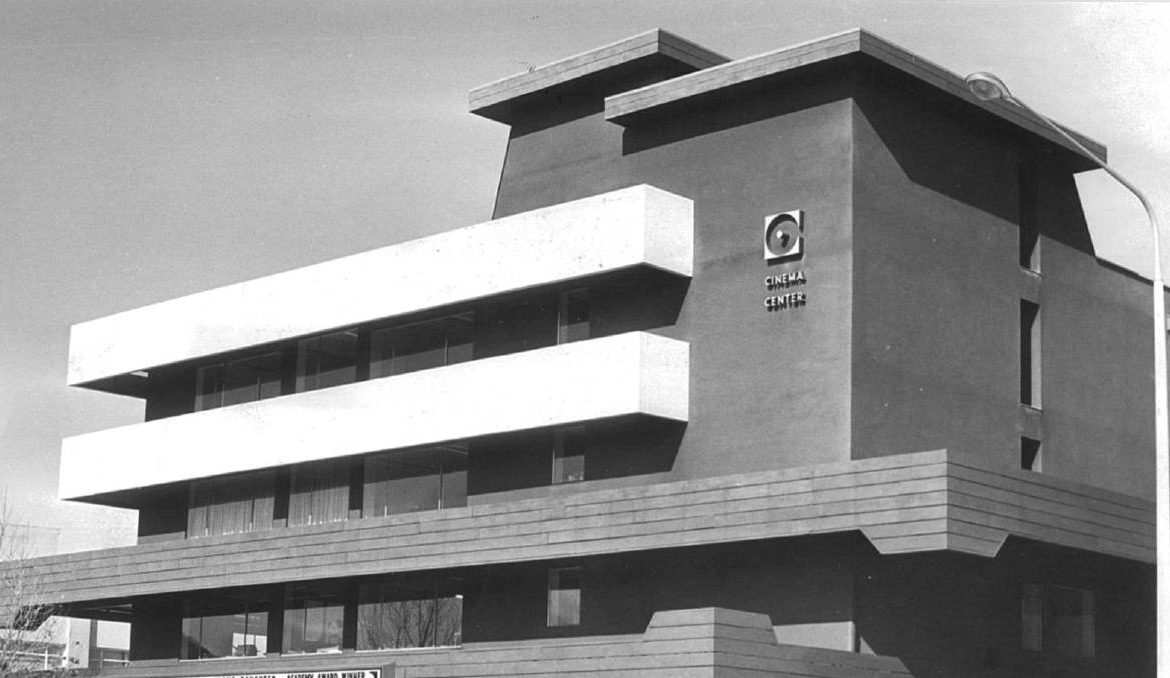news, latest-news, heritage council, center cinema, canberra, architecture
From a former haunt for cinephiles to a nightlife hub, Canberra’s Center Cinema building has been transformed and reinvented. Now, the mid-century masterpiece has been provisionally heritage listed by the ACT Heritage Council, the first step towards permanent heritage listing. ACT Heritage Council chairman David Flannery said while the owners aimed to convert the space into a multi-level hotel and event venue, it was not under threat of demolition or major redevelopment . “The owners wish to retain the building … and keep it within their family,” Mr Flannery said. “Finding a new use for an old building is in fact a very good way to maintain it in the future. There’s lots of examples of places in Canberra that can’t be used any more for the use for which [they were] built.” The establishment of the independent cinema was driven by developer Dr Darrel Killen, who saw the need for a sophisticated entertainment venue in a fast-growing city. The cinema opened on October 5, 1965 with the Canberra premiere of Dr Zhivago, which screened at the cinema for a whopping nine weeks. Prime ministers and dignitaries frequented the cinema over the decades, including Harold Holt and his wife Zara, who attended the premiere of the Australian film Journey Out Of Darkness in 1967. The cinema was designed by renowned Italian-Australian architect Enrico Taglietti. Mr Taglietti died last year at the age of 93, and was known for designing other iconic Canberra buildings such as the Dickson Library and the Italian embassy. Mr Taglietti was awarded a gold medal from the Australian Institute of Architects in 2007, and was made an officer of the Order of Australia posthumously in 2020. Beyond nostalgia and cultural significance, the Heritage Council also cited innovative architecture as another reason to protect the building. The council believes the building is one of the first in Australia to use Vierendeel trusses instead of columns to create the basement space. Vierendeel trusses were commonly used in the building of bridges and factories in the 20th century. The lack of columns allowed for undisturbed viewing in the cinema. Today the building is home to a number of offices and bars, including the soon-to-be closed Shorty’s, Flash Burger, Lola’s Pizza and nightlife venue Fiction. In 2017 the building was bought by Beach Street Enterprises, owned by Canberra lawyer Jason Parkinson, for $9.8 million.
/images/transform/v1/crop/frm/fdcx/doc7dcmgck133ace4v7krl.jpg/r4_0_1615_910_w1200_h678_fmax.jpg
From a former haunt for cinephiles to a nightlife hub, Canberra’s Center Cinema building has been transformed and reinvented. Now, the mid-century masterpiece has been provisionally heritage listed by the ACT Heritage Council, the first step towards permanent heritage listing.
ACT Heritage Council chairman David Flannery said while the owners aimed to convert the space into a multi-level hotel and event venue, it was not under threat of demolition or major redevelopment .
“The owners wish to retain the building … and keep it within their family,” Mr Flannery said.
“Finding a new use for an old building is in fact a very good way to maintain it in the future. There’s lots of examples of places in Canberra that can’t be used any more for the use for which [they were] built.”
Architect Enrico Taglietti with a model of the iconic Center Cinema building in 2012. Picture: Rohan Thomson
The establishment of the independent cinema was driven by developer Dr Darrel Killen, who saw the need for a sophisticated entertainment venue in a fast-growing city. The cinema opened on October 5, 1965 with the Canberra premiere of Dr Zhivago,which screened at the cinema for a whopping nine weeks. Prime ministers and dignitaries frequented the cinema over the decades, including Harold Holt and his wife Zara, who attended the premiere of the Australian film Journey Out Of Darkness in 1967.
The cinema was designed by renowned Italian-Australian architect Enrico Taglietti. Mr Taglietti died last year at the age of 93, and was known for designing other iconic Canberra buildings such as the Dickson Library and the Italian embassy. Mr Taglietti was awarded a gold medal from the Australian Institute of Architects in 2007, and was made an officer of the Order of Australia posthumously in 2020.
The Center Cinema building in 2016 before it was sold for $9.3 million. Picture: supplied
Beyond nostalgia and cultural significance, the Heritage Council also cited innovative architecture as another reason to protect the building.
The council believes the building is one of the first in Australia to use Vierendeel trusses instead of columns to create the basement space. Vierendeel trusses were commonly used in the building of bridges and factories in the 20th century. The lack of columns allowed for undisturbed viewing in the cinema.
Today the building is home to a number of offices and bars, including the soon-to-be closed Shorty’s, Flash Burger, Lola’s Pizza and nightlife venue Fiction. In 2017 the building was bought by Beach Street Enterprises, owned by Canberra lawyer Jason Parkinson, for $9.8 million.
- Canberrans have until December 15 to have their say on the site’s heritage status by going to yoursay.act.gov.au.







